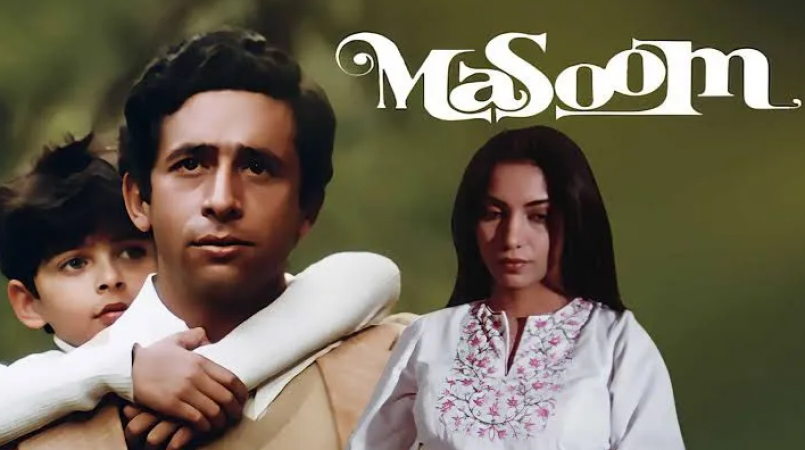
Shekhar Kapoor's "Masoom" (1983), regarded as a classic work of Indian cinema, is renowned for its depth of feeling and moving narrative. But when the movie's director, Shekhar Kapoor, referred to it as a "original" work on social media, it became the subject of debate. When it was revealed that "Masoom" was, in fact, a remake of the movie "Man, Woman, and Child," which was based on a novel, there was a swift and harsh online backlash. We explore the complexities of the "Masoom" controversy in this article, as well as the moral implications of calling a remake an original work.
The main character of "Masoom" is a family man who finds out he has an unborn son from a previous relationship. Naseeruddin Shah plays this character. His past begins to overlap with his present, and the movie explores the ensuing emotional turmoil. Audiences found the movie's depiction of relationships, innocence, and the complexity of human emotions to be compelling, securing the film's place in Indian cinema history.
Shekhar Kapoor's mention of "Masoom" as a "original movie" on social media started the debate. As many film buffs and enthusiasts were aware that the movie was an adaptation of "Man, Woman, and Child" by Erich Segal, the claim was met with skepticism and criticism. Before Kapoor's rendition, the book had already been turned into a Hollywood movie in 1983. This information sparked a contentious discussion about the propriety of referring to a remake as an original work.
Direct interaction with their audience is made possible by social media platforms for actors, creators, and filmmakers. They do, nonetheless, provide a forum for both admirers and detractors to express their views. Fans who were upset by what they perceived as a lack of transparency in Kapoor's claim about the source material expressed their outrage and disappointment. An important part of amplifying these opinions was played by social media, which sparked a larger discussion about the filmmakers' obligations to accurately represent their work.
The ethical obligation of filmmakers to be open about the sources of their work is at the center of the debate. Although adaptations and remakes are common in the film industry, it is important for creators to properly acknowledge their inspiration. Kapoor's word choice sparked a discussion about whether his assertion was the result of an honest error, a public relations ploy, or an actual misunderstanding of the term "original."
Literature, foreign language films, and even actual events have all been adapted for the big screen in the past. Filmmakers can retell stories for fresh audiences and infuse the material with their unique creative vision through the process of adaptation. However, it's important to treat source material with respect, giving credit to the authors while also offering a fresh viewpoint.
In spite of the controversy, "Masoom" is still praised for its depth of emotion, performances, and powerful storytelling. The movie's staying power is proof of its capacity to have a deep emotional impact on viewers. But the controversy has also prompted additional debate over the moral propriety of referring to adaptations and remakes as "original."
In the era of social media and instant communication, the "Masoom" controversy serves as a sobering lesson for filmmakers and other creators. It emphasizes the significance of openness, moral consideration, and appropriate attribution when talking about adaptations and remakes. Filmmakers can take a lesson from this incident and move forward by recognizing the source material and paying respect to their inspirations.
The debate over "Masoom" and Shekhar Kapoor's assertion of originality shed light on the nuances of adapting and remaking works in the world of cinema. The episode emphasizes the need for openness, moral considerations, and responsible communication when discussing creative works, even though the movie is still regarded as a classic. The incident serves as a reminder that filmmaking is a collaborative and iterative process, and that upholding the integrity of the business and its products depends on accurate attribution of source material.
Love on Screen and Off: Exploring the Whispers Around Madhuri Dixit's Relationships
The Unconventional Setting of 'Gol Maal' in Mukherjee's Bungalow
The Alpine Elegance of Yash Chopra's 1970s Cinematic Romance